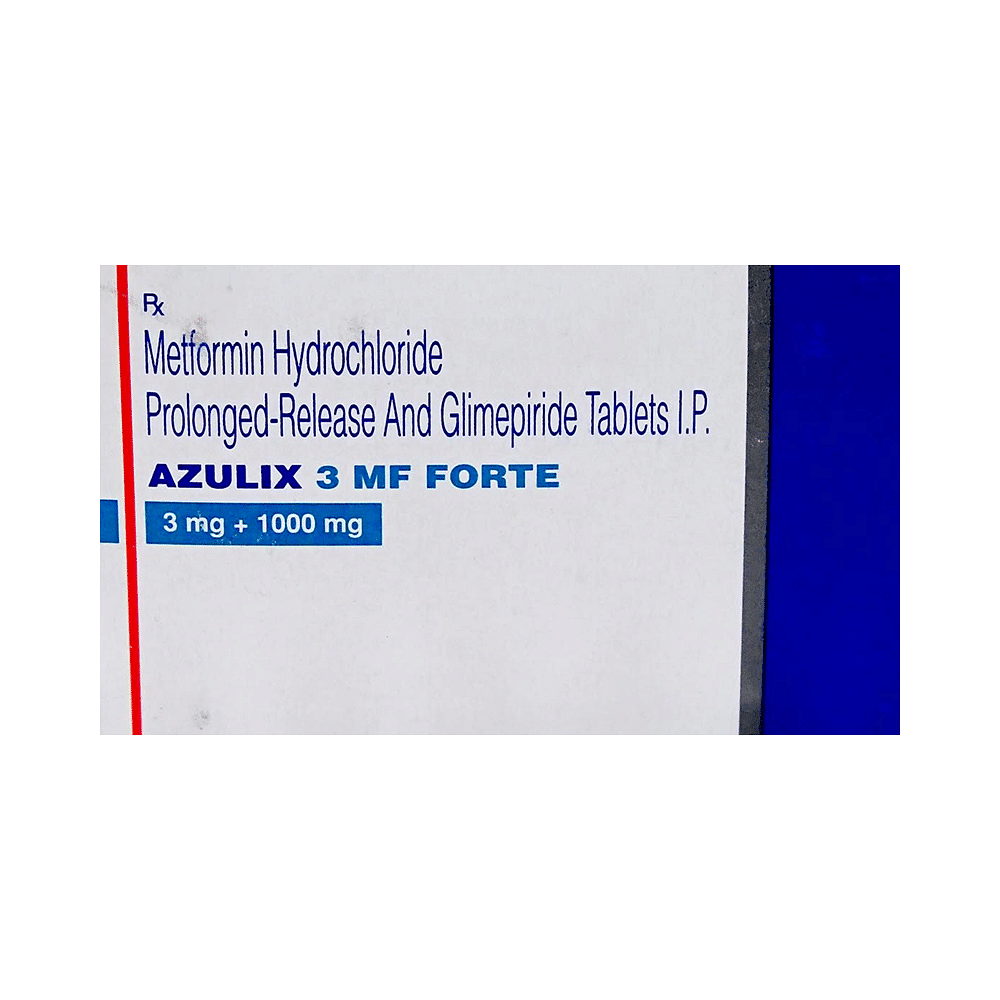
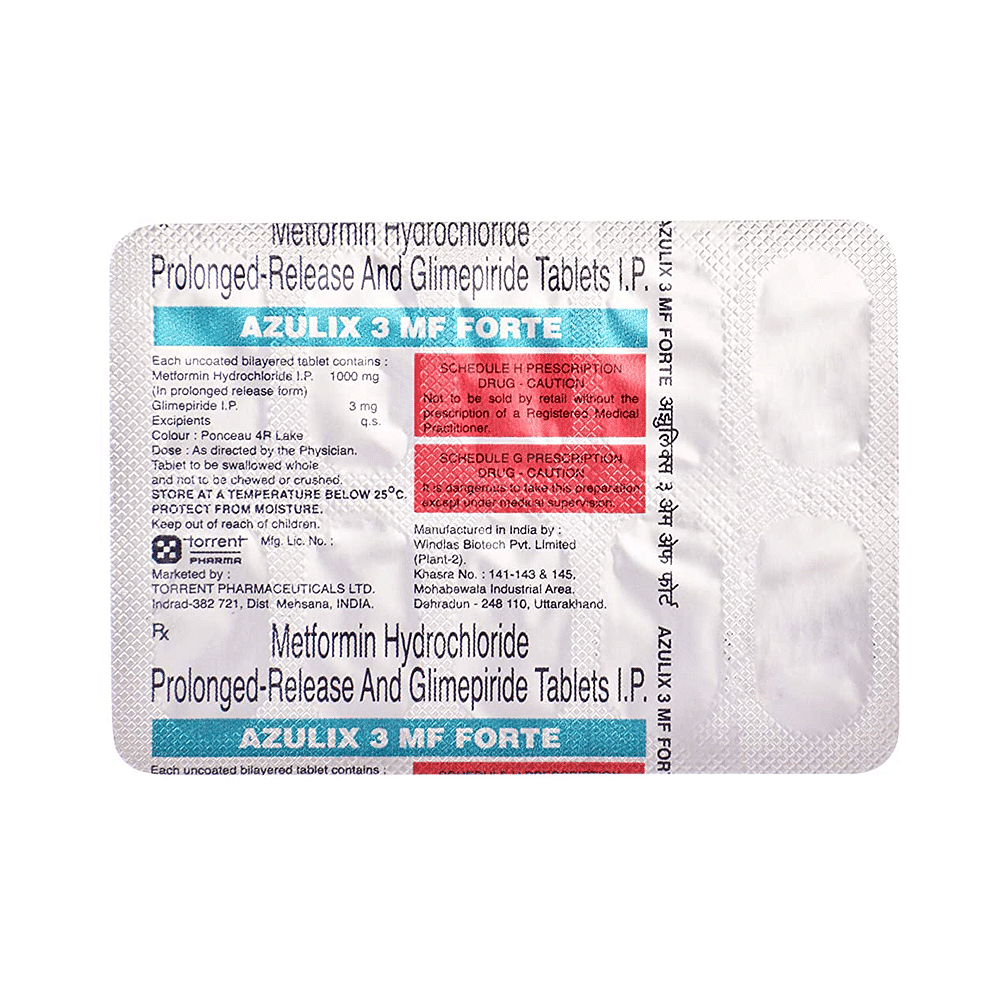

Azulix 3 MF Forte Tablet PR
Manufacturer
Torrent Pharmaceuticals Ltd
Salt Composition
Glimepiride (3mg) + Metformin (1000mg)
Key Information
Short Description
Azulix 3 MF Forte Tablet PR is a combination of two medicines used to treat type 2 diabetes mellitus in adults. It helps control blood sugar levels in people with diabetes.
Dosage Form
Tablet PR
Introduction
Azulix 3 MF Forte Tablet PR is a combination of two antidiabetic medicines: Glimepiride and Metformin. It is used to treat type 2 diabetes mellitus in adults. It helps control blood sugar levels in people with diabetes.
Directions for Use
Use it as advised by your doctor or check the label for directions before use. Azulix 3 MF Forte Tablet PR is to be taken with food.
How it works
Azulix 3 MF Forte Tablet PR is a combination of two antidiabetic medicines: Glimepiride and Metformin. Glimepiride is a sulfonylurea which works by increasing the amount of insulin released by the pancreas in order to lower the blood glucose. Metformin is a biguanide which works by lowering glucose production in the liver, delaying glucose absorption from intestines and increasing the body's sensitivity to insulin.
Quick Tips
You have been prescribed this combination medicine as it can control blood sugar better than metformin alone. You should continue to exercise regularly Eat a healthy diet Take your other diabetes medicines along with Azulix 3 MF Forte Tablet PR. Take it with food to lower your chance of having an upset stomach.
Related Medicines

Glimisave M3 Forte Tablet
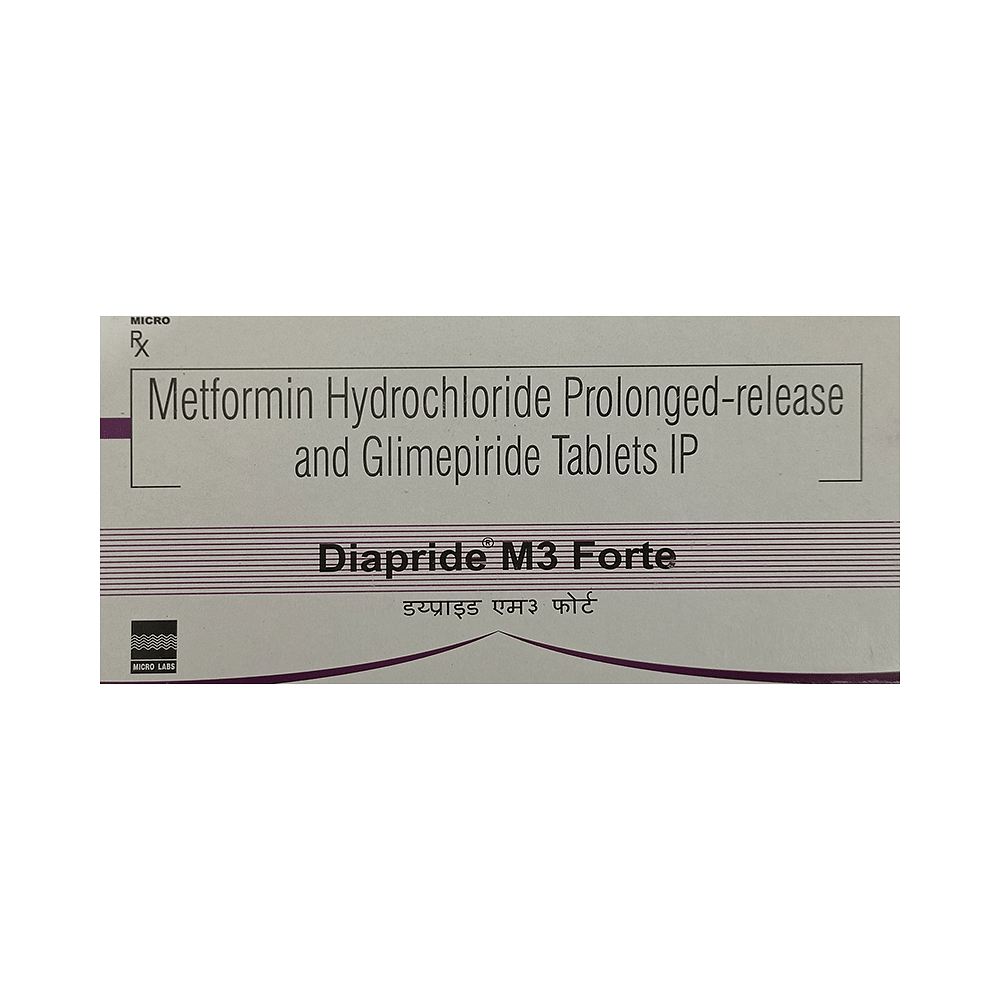
Diapride M3 Forte Tablet

Geminor M 3 Forte Tablet PR

Gluconorm-G 3 Forte Tablet
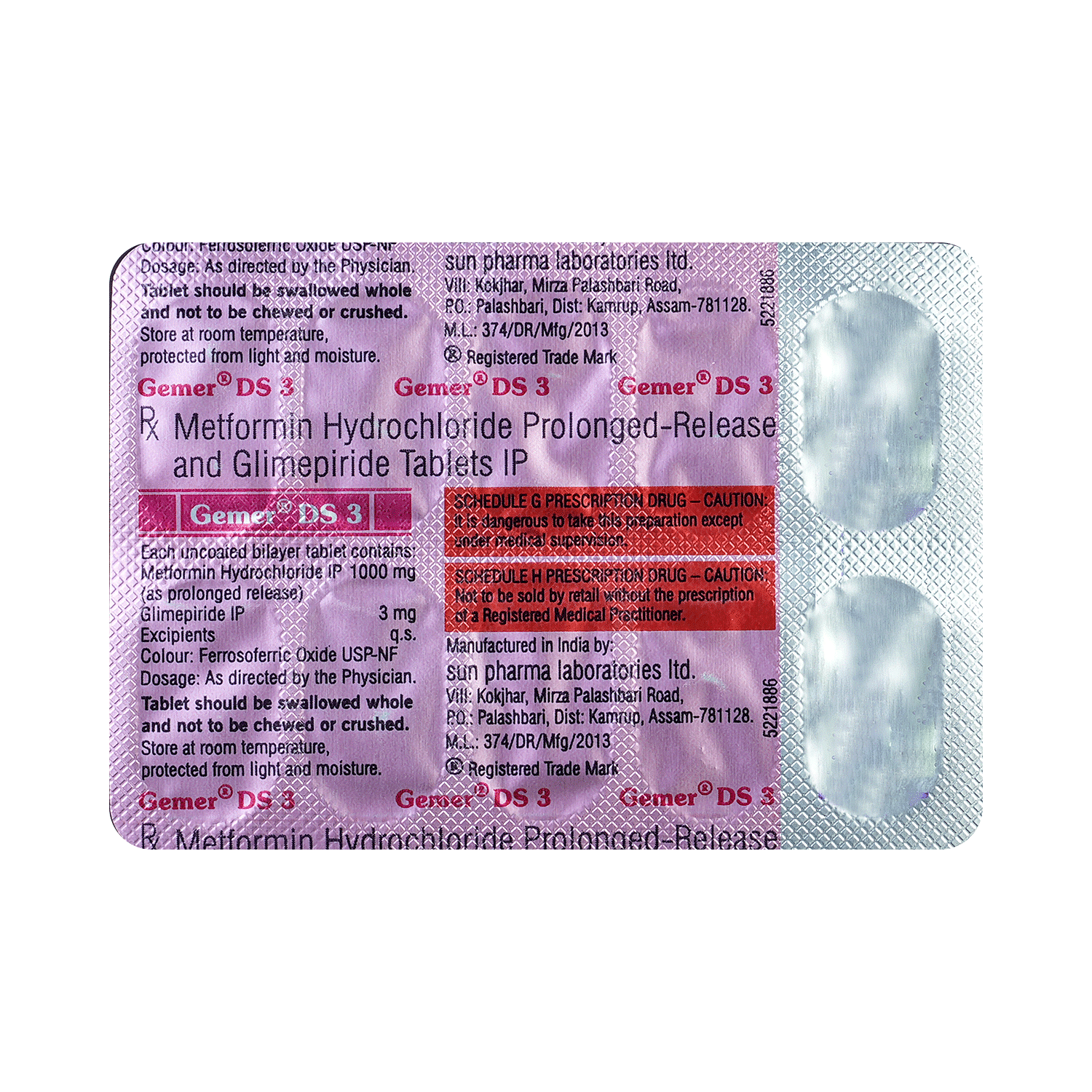
Gemer DS 3 Tablet
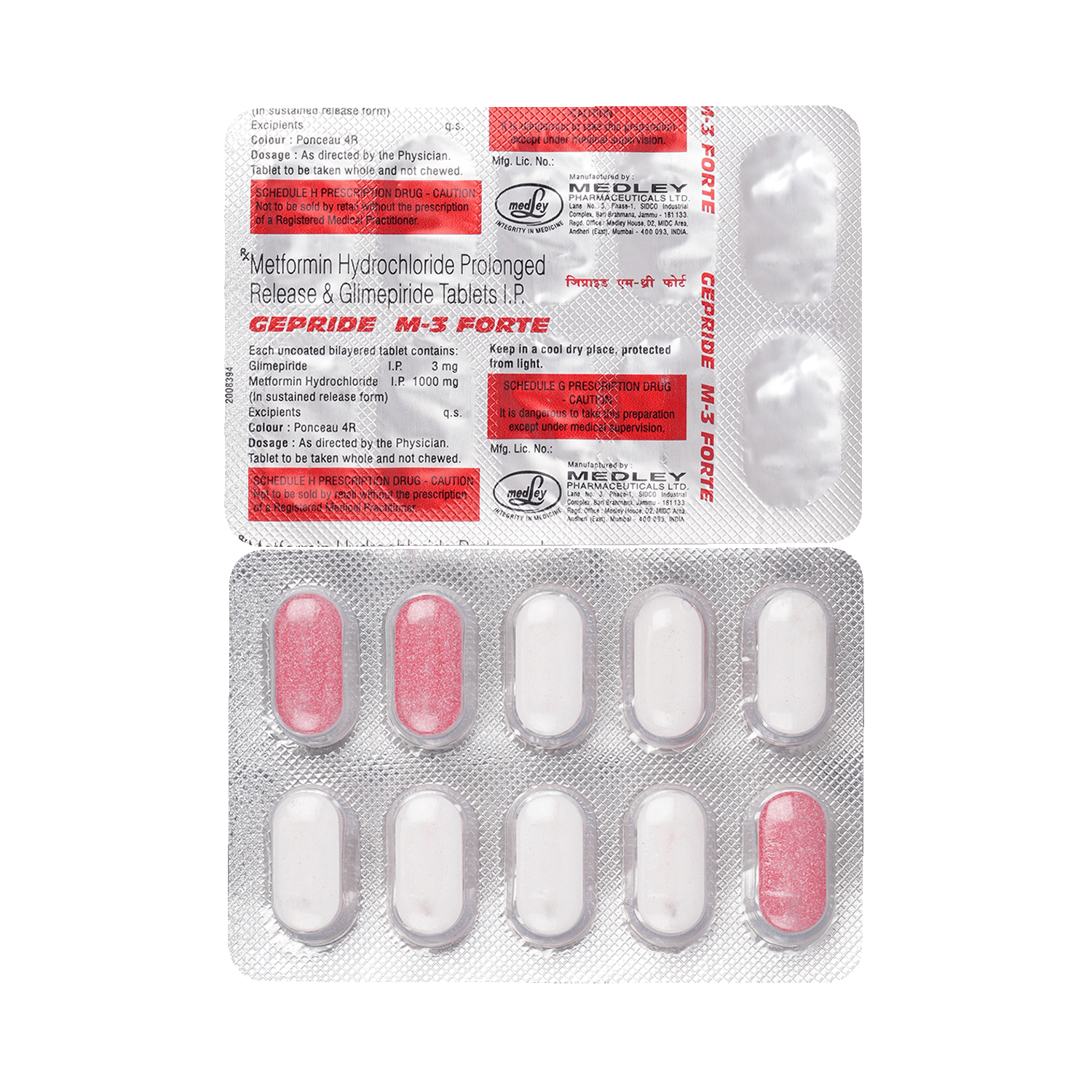
Gepride M 3 Forte Tablet PR

Glimestar-M3 Forte Tablet

Zoryl M 3 Forte Tablet
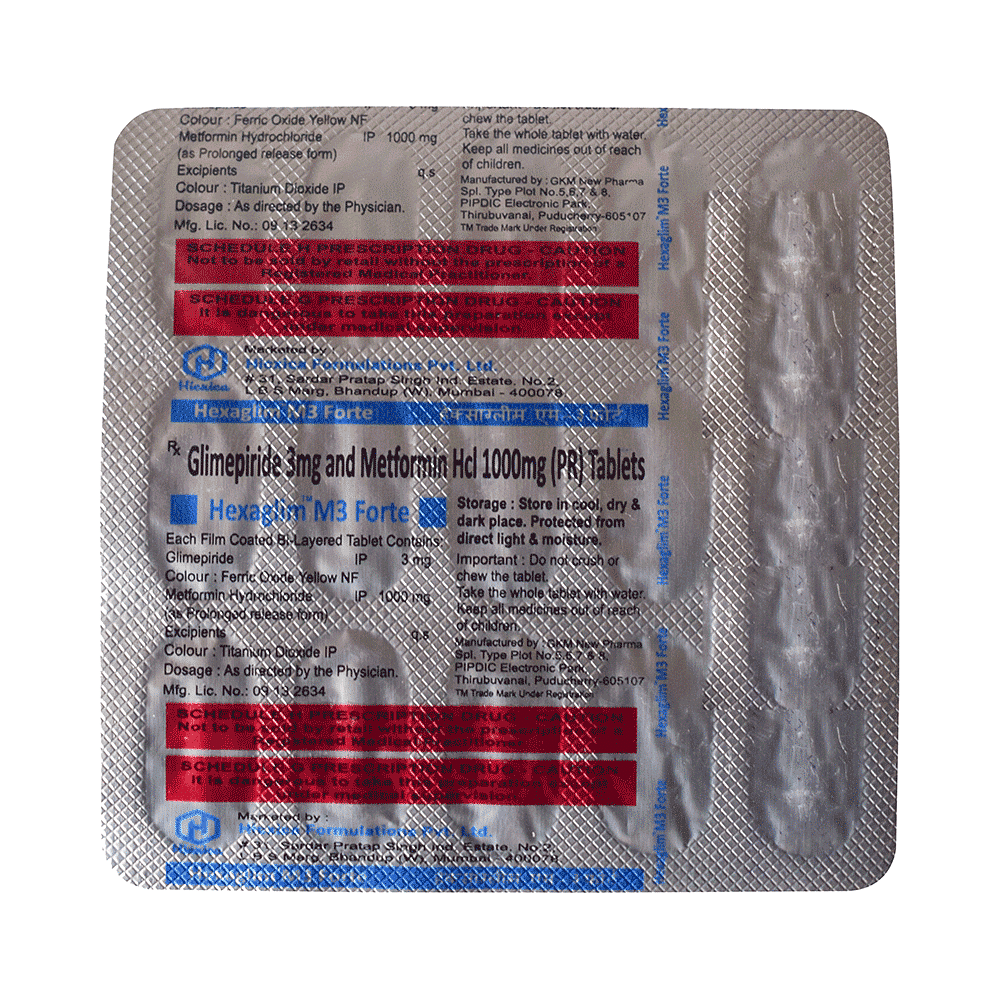
Hexaglim M3 Forte Tablet PR
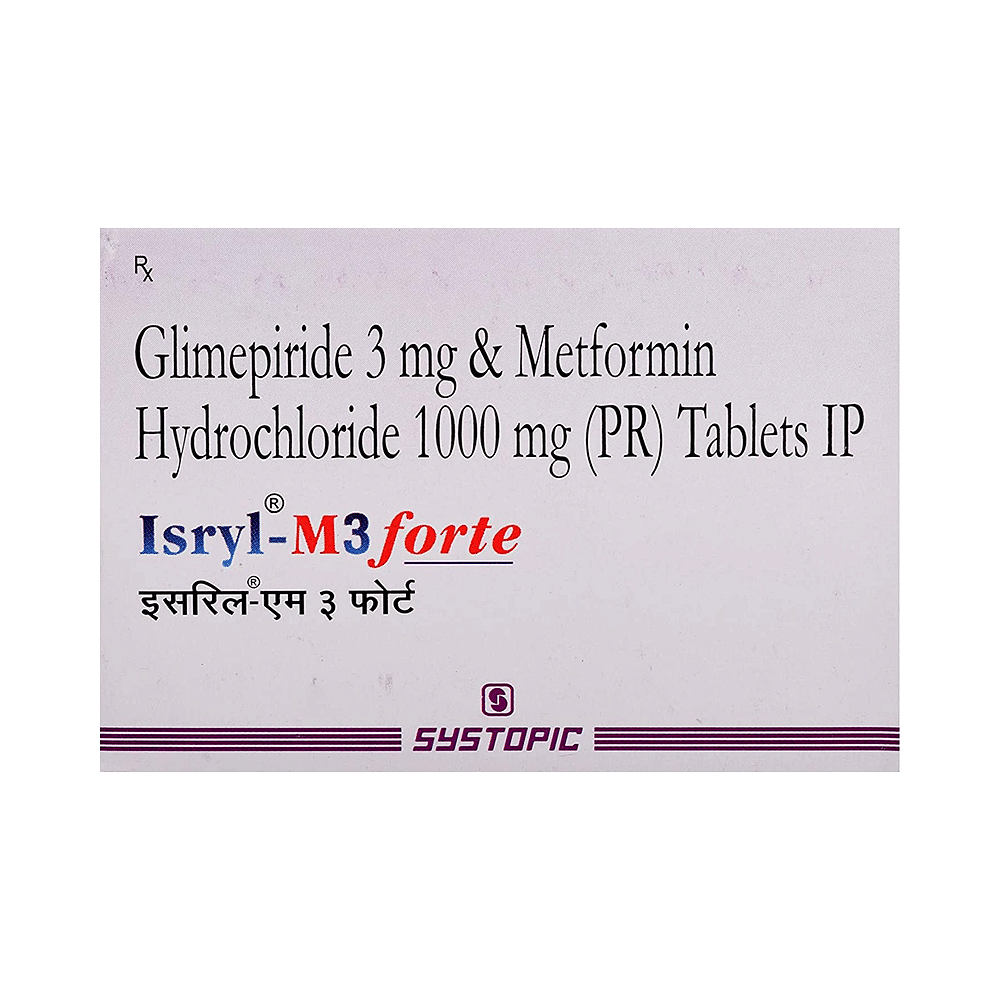
Isryl-M3 Forte Tablet PR
Frequently asked questions
What are the recommended storage conditions for Azulix 3 MF Forte Tablet?
Store Azulix 3 MF Forte Tablet in its original container, tightly closed. Follow the storage instructions provided on the packaging or label. Dispose of any unused medication properly and ensure it is not accessible to pets, children, or other individuals.
Can using Azulix 3 MF Forte Tablet lead to lactic acidosis?
Yes, Azulix 3 MF Forte Tablet can cause lactic acidosis, a medical emergency characterized by elevated blood lactate levels. This rare side effect is particularly concerning for individuals with kidney disease, elderly patients, or those who consume excessive alcohol. Symptoms include muscle weakness or pain, dizziness, fatigue, cold sensations in the arms and legs, difficulty breathing, nausea, vomiting, abdominal pain, or a slow heart rate. If you experience these symptoms, discontinue use and consult your doctor immediately.
What is Azulix 3 MF Forte Tablet?
Azulix 3 MF Forte Tablet is a combination medication consisting of Glimepiride and Metformin. It is used to treat type 2 diabetes mellitus (DM) in adults, helping to regulate blood glucose levels when combined with a balanced diet and regular exercise. Glimepiride works by stimulating insulin release from the pancreas, while Metformin reduces liver glucose production and improves insulin sensitivity. This medication is not intended for the treatment of type 1 DM.
What are possible side effects of Azulix 3 MF Forte Tablet?
Common side effects associated with Azulix 3 MF Forte Tablet include hypoglycemia (low blood sugar), altered taste, nausea, stomach pain, diarrhea, and headache. In rare cases, serious side effects like lactic acidosis can occur. Long-term use may also lead to Vitamin B12 deficiency, which, if left untreated, can cause anemia and nerve problems, characterized by numbness or tingling sensations in the hands and feet, weakness, urinary issues, changes in mental status, and balance difficulties.
Can using Azulix 3 MF Forte Tablet lead to Vitamin B12 deficiency?
Yes, long-term use of Azulix 3 MF Forte Tablet can cause Vitamin B12 deficiency due to its interference with stomach absorption. This may result in anemia and nerve problems if left untreated, manifesting as numbness or tingling sensations in the hands and feet, weakness, urinary issues, changes in mental status, and balance difficulties. To prevent these issues, consider taking Vitamin B12 supplements at least once a year.
Can using Azulix 3 MF Forte Tablet cause hypoglycemia?
Yes, using Azulix 3 MF Forte Tablet can lead to hypoglycemia (low blood sugar). Symptoms include nausea, headache, irritability, hunger, sweating, dizziness, rapid heart rate, and feelings of anxiety or shakiness. This risk is increased if you skip meals, consume alcohol, engage in excessive exercise, or take other antidiabetic medications concurrently. Regularly monitor your blood glucose levels to avoid hypoglycemia.
Is it safe to take alcohol while taking Azulix 3 MF Forte Tablet?
No, it is not recommended to consume alcohol while using Azulix 3 MF Forte Tablet as it can lower your blood sugar levels and increase the risk of hypoglycemia. Additionally, excessive alcohol consumption may lead to lactic acidosis.


